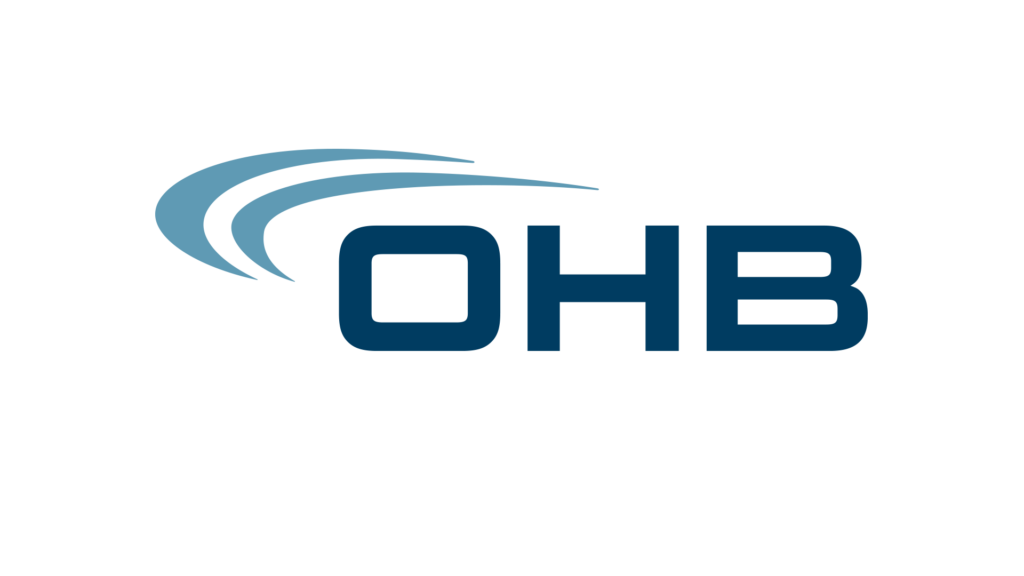Have you ever thought about why some people click so well with their work colleagues while others barely connect? The answer might surprise you. In today’s workplace, having strong relationships with work colleagues can make your job more enjoyable, improve your happiness, and even boost your career. However, many struggle to go beyond simple chats in the break room and build real friendships. What’s the difference between a deep, meaningful bond with work colleagues and just being polite? And how can you turn your group of work colleagues into a reliable, supportive team?
This guide will explore the nuances of workplace relationships, offering practical strategies for cultivating meaningful connections with your work colleagues. From understanding the different types of workplace relationships to navigating common challenges, we'll provide actionable insights to help you build a supportive professional network. By the end, you'll discover why investing in these relationships isn't just personally fulfilling—it's professionally advantageous in ways you might never have considered.
Understanding the Dynamics of Workplace Relationships
When we talk about work colleagues, we're referring to the people we interact with professionally on a regular basis. These relationships exist on a spectrum, from casual acquaintances to close professional allies. Understanding the different types of workplace relationships is essential for navigating your professional environment effectively.
Work colleagues can be categorized in several ways. Some are peers at your same level, while others might be supervisors, subordinates, or cross-departmental contacts. Each relationship carries its own dynamics and expectations. For instance, your relationship with a team member you collaborate with daily will naturally differ from your connection with someone from another department whom you see occasionally.
The quality of these relationships significantly impacts workplace culture. Research consistently shows that positive relationships with work colleagues contribute to higher job satisfaction, increased productivity, and lower turnover rates. When people feel connected to their colleagues, they're more likely to engage fully with their work and remain loyal to their organization.
Strong workplace relationships aren't just nice to have—they're fundamental to organizational success and individual wellbeing.
However, the nature of work relationships has evolved dramatically in recent years. Remote and hybrid work arrangements have transformed how we connect with our work colleagues. Without the natural interactions that occur in physical workplaces, many professionals now find it challenging to build meaningful relationships with their peers. This shift has prompted both individuals and organizations to seek new approaches to fostering connection in the digital age.
The Benefits of Strong Relationships with Work Colleagues

Developing strong bonds with your work colleagues offers numerous advantages that extend beyond simple workplace pleasantries. These benefits impact both your professional growth and personal wellbeing in significant ways.
From a career perspective, solid relationships with work colleagues create a network of support that can enhance your professional journey. When you have strong connections, you gain access to:
-
Increased collaboration opportunities
-
Mentorship and guidance
-
Professional development resources
-
Career advancement possibilities
On a personal level, meaningful workplace relationships contribute significantly to your overall wellbeing. Having supportive work colleagues can reduce stress, prevent burnout, and create a sense of belonging that makes coming to work more enjoyable.
| Benefit Category | Impact of Strong Relationships | Key Outcome |
|---|---|---|
| Professional Growth | Access to diverse perspectives, skill development | Career opportunities |
| Emotional Wellbeing | Reduced stress, increased job satisfaction | Sense of belonging |
| Organizational Success | Higher productivity, innovation | Employee retention |
| Work-Life Balance | Better boundaries, more enjoyable workday | Reduced burnout |
The impact extends to organizational outcomes as well. Companies with strong interpersonal connections among work colleagues typically experience higher productivity, more innovation, and better employee retention. This is why forward-thinking organizations are increasingly investing in tools and programs designed to strengthen workplace relationships.
Neroia's social employee benefits platform exemplifies this approach, helping organizations foster organic connections among work colleagues through personalized activity suggestions based on shared interests. By facilitating meaningful interactions outside of work contexts, such platforms help break down barriers and build authentic relationships that enhance both individual and organizational success.
Common Challenges in Building Workplace Relationships
Despite the clear benefits, forming meaningful connections with work colleagues isn't always straightforward. Several common obstacles can hinder relationship development in professional settings.
Communication barriers represent one of the most significant challenges. These can stem from differences in communication styles, language barriers, or the limitations of digital communication tools. When colleagues primarily interact through email or messaging platforms, nuance and personal connection can be lost.
Workplace diversity, while tremendously valuable, can also present challenges in relationship building. Differences in cultural backgrounds, generational perspectives, and personal values may create initial barriers to connection. Overcoming these requires intentionality and openness to learning from different viewpoints.
The structure of modern work environments can further complicate relationship building. Consider these common structural challenges:
-
Departmental silos that limit cross-functional interaction
-
Remote or hybrid work arrangements that reduce face-to-face contact
-
High-pressure environments where relationship building isn't prioritized
-
Competitive cultures that discourage vulnerability and authentic connection
The barriers to workplace connection aren't insurmountable—they simply require awareness and intentional strategies to overcome.
Time constraints present another significant hurdle. In fast-paced work environments, professionals often feel they don't have time for relationship building. This perspective, however, overlooks how strong relationships can actually save time through improved collaboration and communication in the long run.
Personal factors can also influence workplace relationships. Introverted individuals may find extensive networking draining, while those with negative past experiences might be hesitant to invest in new workplace connections. Understanding these personal dynamics is crucial for developing strategies that work for your unique situation and personality.
Strategies for Building Meaningful Connections with Work Colleagues
Building strong relationships with work colleagues requires intentional effort and thoughtful approaches. Here are practical strategies you can implement to foster meaningful connections in your workplace.
Start with authentic communication. Genuine interest in your colleagues' lives and perspectives forms the foundation of meaningful relationships. Practice active listening by focusing fully on what others are saying rather than planning your response. Ask thoughtful questions that demonstrate your interest in understanding their viewpoints and experiences.
Create opportunities for connection beyond work tasks. While professional collaboration is important, deeper relationships often develop through:
-
Informal coffee chats or lunch meetings
-
Team-building activities that encourage personal sharing
-
Celebration of personal and professional milestones
-
Participation in company social events or interest groups
Demonstrate reliability and trustworthiness in all your interactions. Follow through on commitments, maintain confidentiality when appropriate, and be consistent in your behavior. Trust forms the bedrock of meaningful workplace relationships.
| Relationship Stage | Key Actions | Expected Outcomes |
|---|---|---|
| Initial Connection | Introduce yourself, find common ground, show genuine interest | Basic rapport and comfort |
| Building Trust | Demonstrate reliability, maintain confidences, offer support | Increased openness and collaboration |
| Deepening Relationship | Share personal info, celebrate successes, provide feedback | Mutual support and resilience |
Respect boundaries while still being open to connection. Different colleagues will have different comfort levels regarding personal disclosure and interaction. Pay attention to these cues and adjust your approach accordingly.
In remote or hybrid work environments, make extra effort to maintain connection. Schedule virtual coffee breaks, use video when possible to capture non-verbal cues, and find creative ways to celebrate team successes even when physically separated.
The most meaningful workplace relationships develop gradually through consistent positive interactions and mutual respect.
Finally, leverage technology thoughtfully to enhance rather than replace personal connection. Tools like Neroia's platform can help identify shared interests among work colleagues and facilitate organic connections through suggested activities that align with individual preferences, making relationship building more natural and enjoyable.
Navigating Different Types of Workplace Relationships
Not all work colleague relationships are the same, and each type requires a different approach. Understanding these distinctions can help you navigate your professional environment more effectively.
Peer relationships form the foundation of most workplace networks. These connections with colleagues at similar organizational levels offer mutual support and collaboration opportunities. To strengthen peer relationships:
-
Offer help without expecting immediate returns
-
Celebrate their successes genuinely
-
Maintain open communication during conflicts
-
Share knowledge and resources freely
Manager-employee relationships involve different power dynamics but can still be meaningful and supportive. If you're managing others, focus on providing clear guidance while demonstrating genuine care for their development. If you're the employee, show reliability while seeking appropriate mentorship.
Cross-departmental relationships often get overlooked but can be incredibly valuable. These connections broaden your organizational perspective and create opportunities for innovation. Make deliberate efforts to connect with colleagues from different teams through:
-
Cross-functional projects
-
Company-wide events
-
Professional development programs
-
Shared interest groups
Remote colleague relationships require extra attention in today's distributed work environment. Without natural in-person interactions, you'll need to be more intentional about building connection through regular check-ins, virtual social events, and thoughtful digital communication.
Different workplace relationships serve different purposes—the key is recognizing their unique value and nurturing each appropriately.
Mentoring relationships, whether formal or informal, provide valuable guidance and perspective. If you're seeking a mentor, be clear about what you hope to learn. If you're mentoring others, focus on listening and asking powerful questions rather than simply providing answers.
Professional friendships that extend beyond work contexts can develop naturally over time. While not all work relationships will evolve into friendships, those that do can provide significant personal and professional benefits. However, it's important to maintain appropriate boundaries even in these closer relationships.
Maintaining Healthy Boundaries with Work Colleagues

While building meaningful connections with work colleagues is valuable, establishing and maintaining appropriate boundaries is equally important. Healthy boundaries protect your wellbeing and ensure professional relationships remain productive.
Understanding the difference between professional closeness and personal friendship is fundamental. Work colleagues can be supportive, collaborative, and even caring without necessarily becoming close personal friends. Recognizing this distinction helps set appropriate expectations for workplace relationships.
Consider these guidelines for establishing healthy boundaries:
-
Be selective about personal information sharing
-
Respect others' time and workload
-
Communicate your availability clearly
-
Maintain professional conduct even in casual settings
-
Recognize when to keep work and personal life separate
Digital boundaries have become increasingly important in modern work environments. Consider implementing practices like:
-
Setting notification limits on work communication apps
-
Establishing clear "offline" hours
-
Using separate devices or accounts for work and personal use when possible
-
Being thoughtful about social media connections with work colleagues
Clear boundaries don't prevent meaningful connections—they create the foundation for healthier, more sustainable workplace relationships.
Navigating conflicts requires particular attention to boundaries. When disagreements arise with work colleagues, address issues directly but respectfully, focusing on specific behaviors rather than personal criticisms. Maintain professional composure even during difficult conversations.
It's also important to recognize when boundaries are being crossed. Signs might include feeling uncomfortable with requests, experiencing burnout from overextending yourself, or noticing that work relationships are negatively impacting your personal life. In these situations, reasserting boundaries clearly and calmly is essential.
Organizations can support healthy boundary-setting through clear policies and cultural norms. Platforms like Neroia help maintain this balance by facilitating meaningful connections while respecting privacy and personal preferences, allowing work colleagues to connect authentically without overstepping professional boundaries.
Leveraging Technology to Strengthen Workplace Connections
In today's digital workplace, technology plays a crucial role in how we build and maintain relationships with work colleagues. When used thoughtfully, digital tools can enhance connection rather than diminish it.
Communication platforms have transformed workplace interaction. Tools like Slack, Microsoft Teams, and Zoom enable real-time collaboration regardless of physical location. To maximize these platforms for relationship building:
-
Create dedicated channels for non-work discussions
-
Use video when possible to capture non-verbal cues
-
Incorporate informal check-ins into virtual meetings
-
Share appropriate personal updates to maintain connection
Social recognition tools allow colleagues to publicly acknowledge each other's contributions, strengthening relationships through appreciation. These platforms create a culture of recognition that fosters positive connections among work colleagues.
Virtual team-building activities have evolved significantly, offering engaging ways for remote teams to connect. Options include:
-
Online game sessions
-
Virtual coffee breaks or happy hours
-
Digital escape rooms or trivia competitions
-
Remote learning experiences like cooking classes or workshops
Employee engagement platforms are increasingly sophisticated, using data and personalization to create meaningful connection opportunities. Neroia's AI-powered system exemplifies this approach, suggesting activities tailored to individual employee interests and schedules. By analyzing preferences and facilitating small-group gatherings around shared interests like sports, wellness, or cultural events, such platforms help break down departmental silos and foster organic connections among work colleagues.
Technology should enhance human connection, not replace it—the most effective digital tools recognize this fundamental principle.
Privacy considerations remain important when using technology for workplace relationships. Employees should maintain control over their personal data and participation preferences. The best platforms, like Neroia, prioritize privacy-conscious approaches while still facilitating meaningful connections.
The future of workplace technology continues to evolve, with emerging tools using artificial intelligence and data analytics to create even more personalized connection experiences. These innovations promise to make relationship building with work colleagues more natural and effective, even in distributed work environments.
Creating a Culture of Connection in Your Workplace
While individual efforts to build relationships with work colleagues are valuable, organizational culture significantly impacts how connections form and flourish. Creating an environment that prioritizes meaningful workplace relationships benefits everyone involved.
Leadership sets the tone for workplace connection. When leaders demonstrate authentic interest in their team members and model relationship-building behaviors, they create permission for others to do the same.
This includes:
-
Taking time to know team members personally
-
Recognizing and celebrating individual contributions
-
Creating psychological safety for authentic expression
-
Demonstrating vulnerability when appropriate
Organizational structures can either facilitate or hinder connection. Consider how physical spaces, team compositions, and work processes impact relationship development among work colleagues. Simple changes like creating communal spaces, implementing cross-functional projects, or establishing mentorship programs can significantly enhance connection opportunities.
Regular team-building activities signal that relationship development is valued. These don't need to be elaborate off-site retreats—even brief, meaningful interactions built into regular workflows can strengthen bonds between work colleagues over time.
Recognition programs that highlight collaboration and support (not just individual achievement) reinforce the importance of workplace relationships. When organizations celebrate how colleagues help each other succeed, they encourage more of these positive interactions.
A culture of connection doesn't happen by accident—it requires intentional design and consistent reinforcement.
New employee onboarding presents a critical opportunity to establish connection as a priority. Organizations that incorporate relationship-building into onboarding help new work colleagues integrate more quickly and effectively.
Employee resource groups and interest-based communities create natural connection points around shared identities or passions. These groups provide safe spaces for authentic interaction while broadening networks across traditional organizational boundaries.
Innovative companies are increasingly implementing dedicated solutions like Neroia to systematically foster workplace connections. By providing a structured yet organic way for work colleagues to connect through shared interests and activities, these platforms strengthen the social fabric of organizations, leading to higher engagement, satisfaction, and cross-departmental collaboration.
Conclusion: Investing in Your Professional Community
Building meaningful relationships with work colleagues represents one of the most valuable investments you can make in your professional life. These connections not only enhance your current work experience but create a foundation for long-term career success and personal fulfillment.
The effort you put into developing authentic workplace relationships yields multiple returns. Strong connections with work colleagues provide emotional support during challenges, create opportunities for collaboration and growth, and contribute to a positive workplace culture that benefits everyone.
Remember that relationship building is an ongoing process rather than a one-time effort. The most meaningful workplace connections develop gradually through consistent positive interactions, mutual respect, and shared experiences. Patience and persistence are essential elements of this journey.
As work environments continue to evolve, particularly with the rise of remote and hybrid arrangements, intentional connection strategies become increasingly important. Organizations that recognize this shift are implementing innovative solutions to support relationship development among distributed teams. Neroia's platform exemplifies this approach, using AI-powered technology to suggest activities tailored to individual interests, facilitating organic connections among work colleagues regardless of physical location or departmental boundaries.
The quality of your professional life is largely determined by the quality of your relationships with work colleagues.




